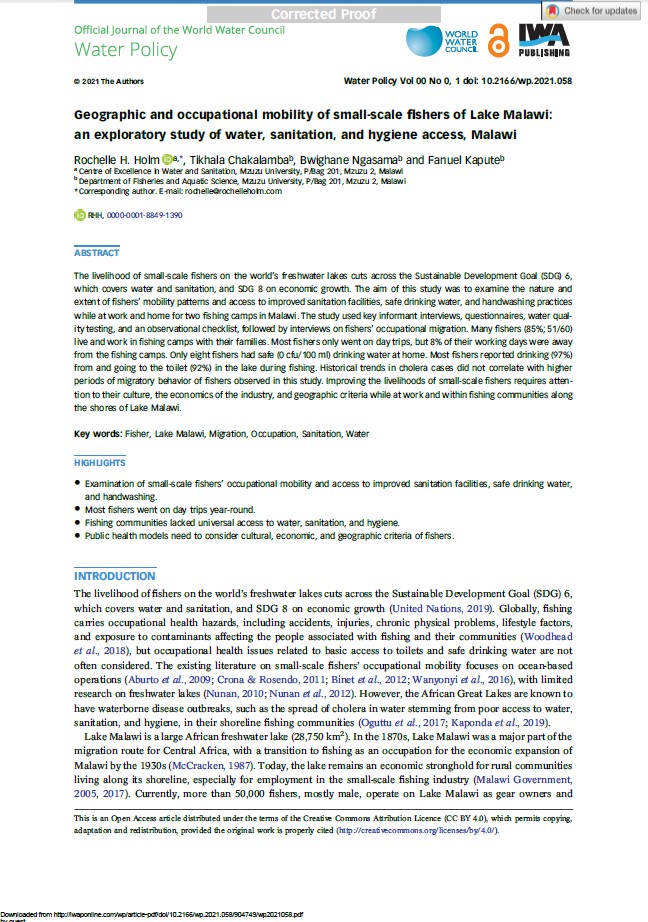Geographic and occupational mobility of small-scale fishers of Lake Malawi: an exploratory study of water, sanitation, and hygiene access, Malawi
 |
article Jan 2021 ; 12 pages
Ed. IWA - London
Téléchargeable sous format: PdF
Téléchargeable chez l'éditeur
Résumé:
The livelihood of small-scale fishers on the world's freshwater lakes cuts across the Sustainable Development Goal (SDG) 6, which covers water and sanitation, and SDG 8 on economic growth. The aim of this study was to examine the nature and extent of fishers' mobility patterns and access to improved sanitation facilities, safe drinking water, and handwashing practices while at work and home for two fishing camps in Malawi. The study used key informant interviews, questionnaires, water quality testing, and an observational checklist, followed by interviews on fishers' occupational migration. Many fishers (85%; 51/60) live and work in fishing camps with their families. Most fishers only went on day trips, but 8% of their working days were away from the fishing camps. Only eight fishers had safe (0 cfu/100 ml) drinking water at home. Most fishers reported drinking (97%) from and going to the toilet (92%) in the lake during fishing. Historical trends in cholera cases did not correlate with higher periods of migratory behavior of fishers observed in this study. Improving the livelihoods of small-scale fishers requires attention to their culture, the economics of the industry, and geographic criteria while at work and within fishing communities along the shores of Lake Malawi.
Mots clefs: |
accès à l'assainissement (CI) (DT) (OP) (ope) , accès à l'eau (CI) (DT) (OP) (ope) , hygiène (CI) (DT) (OP) (ope) |
Pays concerné: |
Editeur/Diffuseur: |
|
IWA
-
International Water Association - London - Royaume Uni |
En cas de lien brisé, nous le mentionner à communication@pseau.org